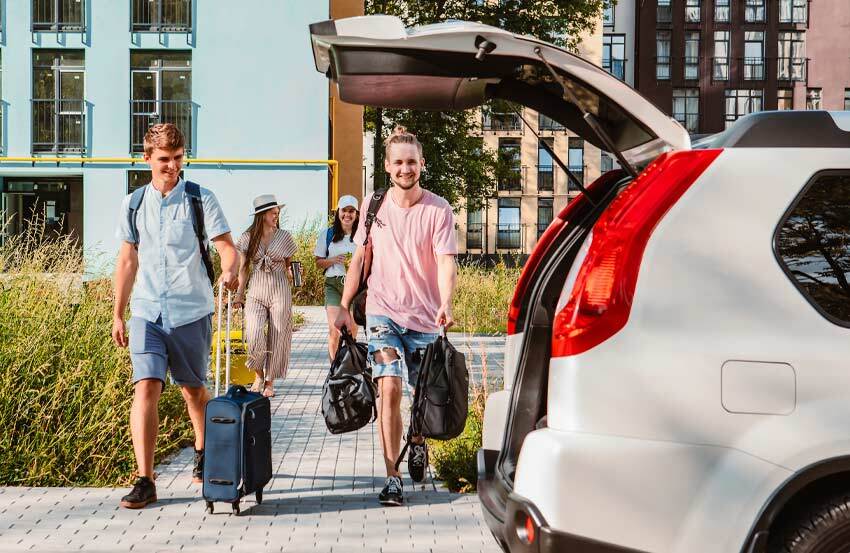If you're renting a car abroad, you'll normally get third-party cover included as part of the rental price. However, your travel insurance won't provide you with any extra cover when renting a car. We've put together some tips on what you'll need to hire a car, including documents and permits, as well as what level of cover you need when renting a car.

What will I need to hire a car?
Along with your UK driving licence, you'll need your passport to hire a car abroad. In certain countries you may also need an International Driving Permit (IDP). An IDP is a complement to your UK driving licence, you may need it to drive abroad.
You may be asked for your credit card details to hire a car, but if possible it's always best to pay with the local currency as it can sometimes work out cheaper.
What are my options when it comes to hiring a car abroad?
Planning ahead is key, especially when it comes to saving money and time. Hiring a car before you leave is generally cheaper than booking it abroad while you're on your trip. Doing this can give you time to read the terms and conditions of the agreement and consider any available optional extras.
Plan ahead and you can choose the car you want, otherwise you might have to use whatever is available at a hire car centre. It's always a good idea to shop around, but note the prices you see aren't always the cheapest as there may be hidden charges.
What other options do I have for car hire?
Considering other alternatives? You have a couple of options. Many car rental companies will allow you to pick up a vehicle in the UK and drive abroad, this generally comes at an extra cost.
You may have third party cover included with your agreement, but this depends on your agreement. Regardless, you still need a VE103 - this is a document to show you're allowed to use a hire car to drive abroad.
Alternatively, you might consider using your own car when travelling in Europe. An insurance policy often provides you with 30 days third party cover across most countries in Europe. But again, you'll have to check with the insurer this is the case. If you want to extend how long you're covered for, it'll likely come at an extra cost.
Do I need additional insurance when renting a car abroad?
It depends, after all, you should have third party cover included as standard when you hire a car. But you can extend or upgrade your level of cover, but this can be expensive.
If you're hiring a car, it's always worth considering car hire excess insurance. This can protect you from pretty hefty excess costs if your hire car is damaged or stolen.
What has changed about driving in the EU since Brexit?
Very little, to be honest. If the vehicle you're driving in Europe is registered in the UK, it must display a national identifier - in this case, the letters “UK”. The identifier can appear as a sticker or feature in a number plate along with the Union Flag.
You won't need a green card to drive in the EU, but it will be required to drive in other countries, such as:
- Albania
- Azerbaijan
- Belarus
- Moldova
- Russia
- Turkey
- Ukraine
Many countries in Europe don't require IDPs, but you may in certain countries, including:
- Bosnia and Herzegovina
- North Macedonia
- San Marino
- Monaco
Tips for renting a car abroad
There are a number of ways you can ensure you're getting a great deal that suits your needs. More importantly you can save yourself money and avoid hassle. It's always important to:
- Shop around: It's worth comparing prices before renting a car abroad. This way you can explore any optional extras to work out the cheapest car to hire that suits your needs.
- Book in advance: Booking in advance of your trip should offer you more availability and options to choose from. You're likely to save money compared to hiring a car on the day you need it.
- Check the small print: The last thing you want is an unexpected bill to come back and bite you. Make sure you read through all the rules around damage and fuel levels before signing an agreement.
- Inspect the vehicle: A member of staff at the car hire office may show you the car and list any defects before you leave. It's important you check the car yourself and point out any additional issues or missing safety equipment etc.
- Consider excess insurance: If you're renting a car abroad, it's worth considering car hire excess insurance. As a tourist, you may be bound to hefty excess costs as part of your car hire agreement. An excess insurance policy can protect you from this in the event the car is stolen or damaged.
Compare travel insurance

